Shaw v. DPP: Legal Analysis of Obscenity and Rule of Law Issues
VerifiedAdded on 2023/01/05
|5
|768
|32
Report
AI Summary
This report provides an analysis of the landmark case of Shaw v. Director of Public Prosecutions (DPP), focusing on the legal issues surrounding obscenity and the rule of law. The report begins with an introduction to obscenity laws in the UK, including the Obscenity Publications Act of 1959 and the historical context provided by R v. Hicklin. The core of the report examines the facts of Shaw v. DPP, where the appellant published a directory of prostitutes, and was convicted of conspiracy to corrupt public morals. The analysis delves into the court's judgment, highlighting the creation of a new offense and the subsequent problems related to the application of retrospective effect and the infringement of the rule of law. The report concludes that the retrospective application of the law in this case violated the appellant's rights and the principle of equality before the law, emphasizing the importance of strict adherence to the rule of law in cases involving obscenity and public morals. This report is a valuable resource for law students, offering a comprehensive understanding of the legal principles at play in this critical case.
1 out of 5
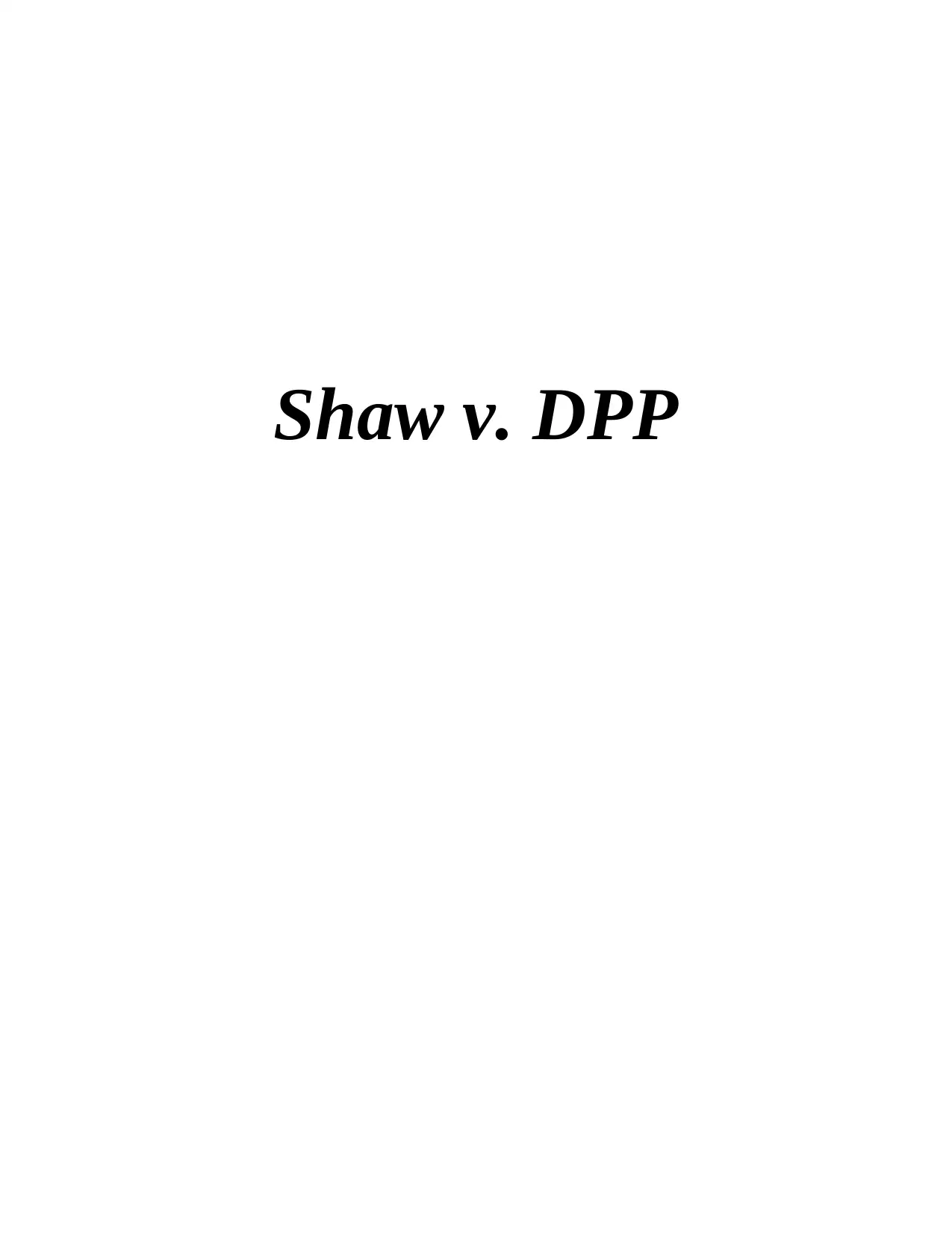
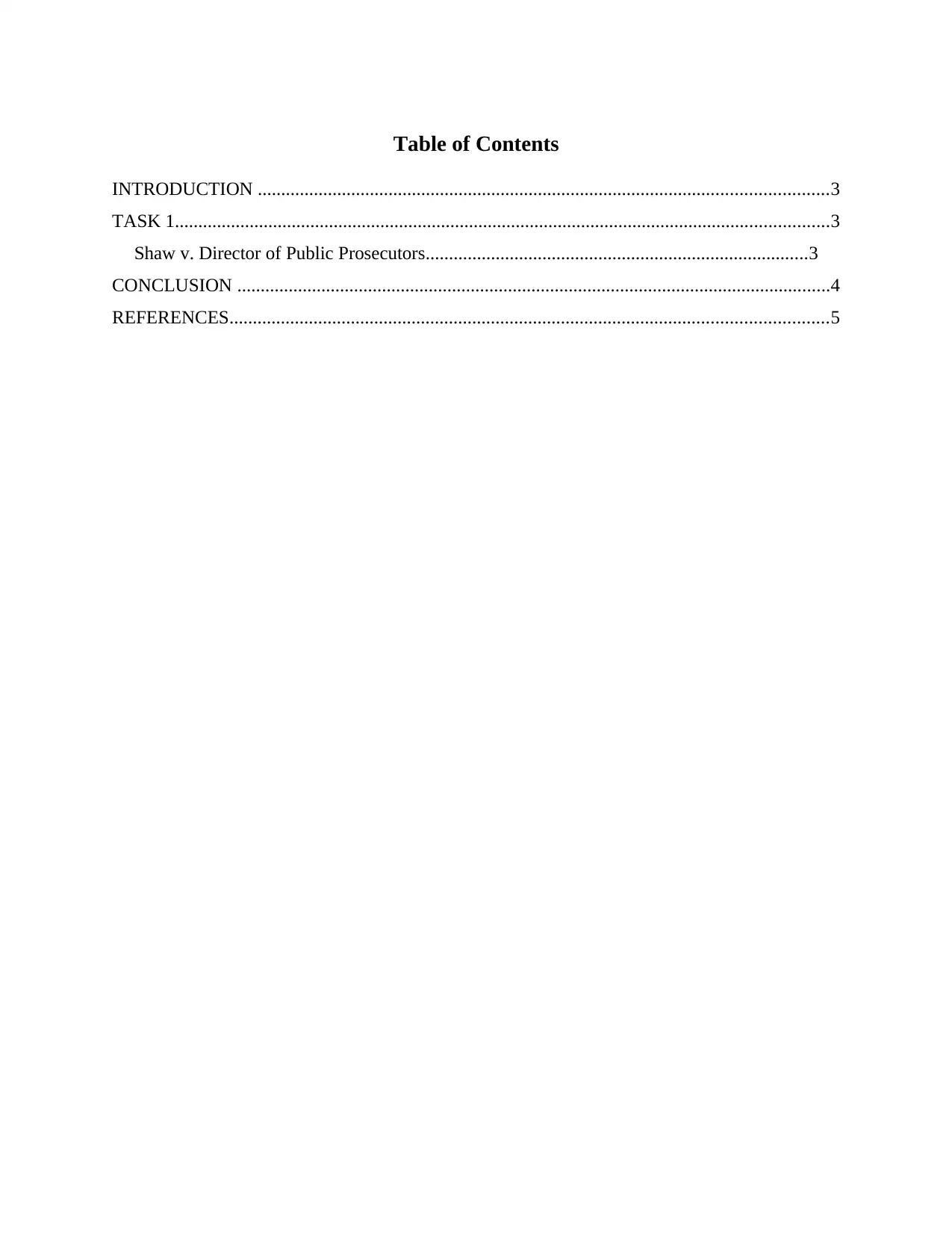
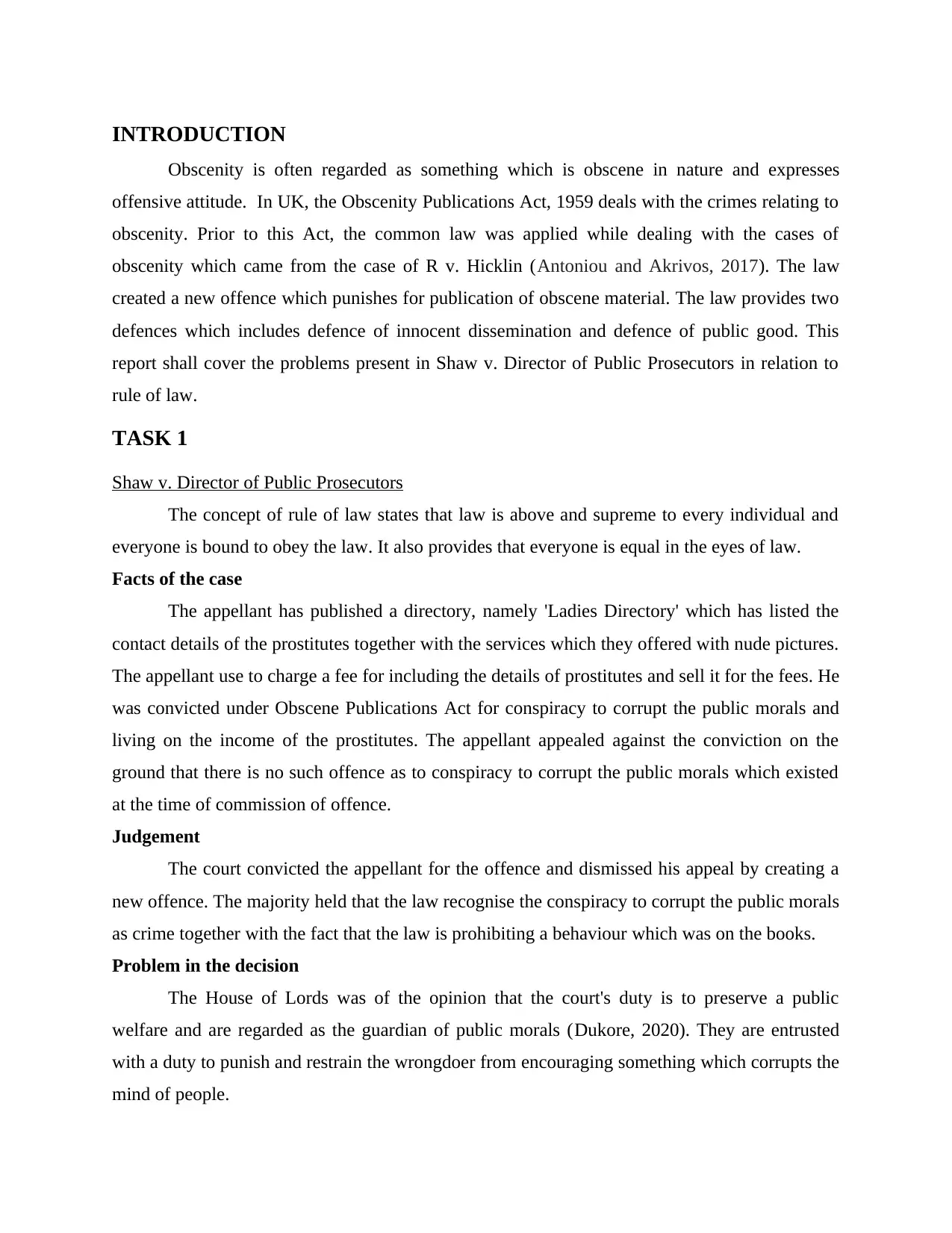

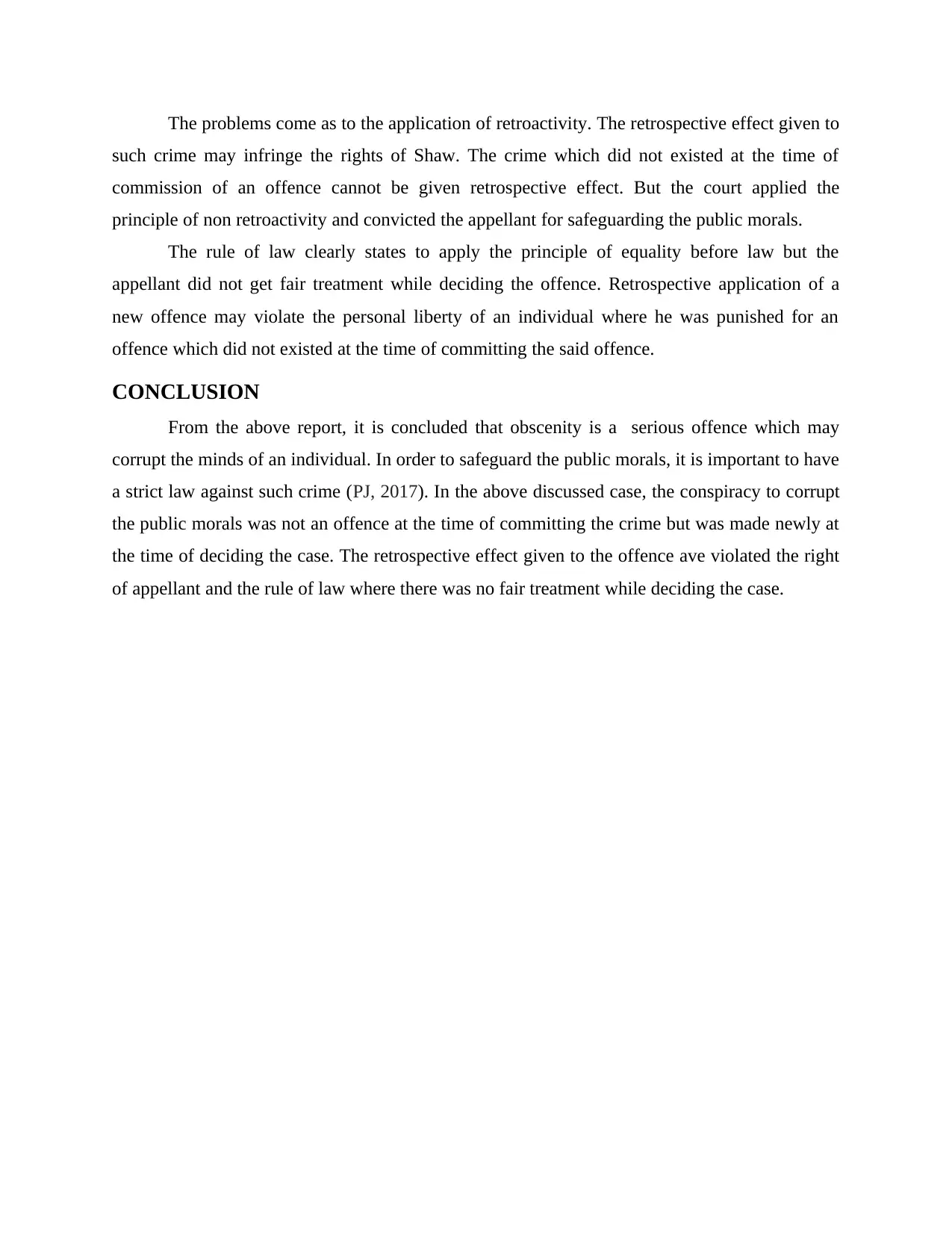
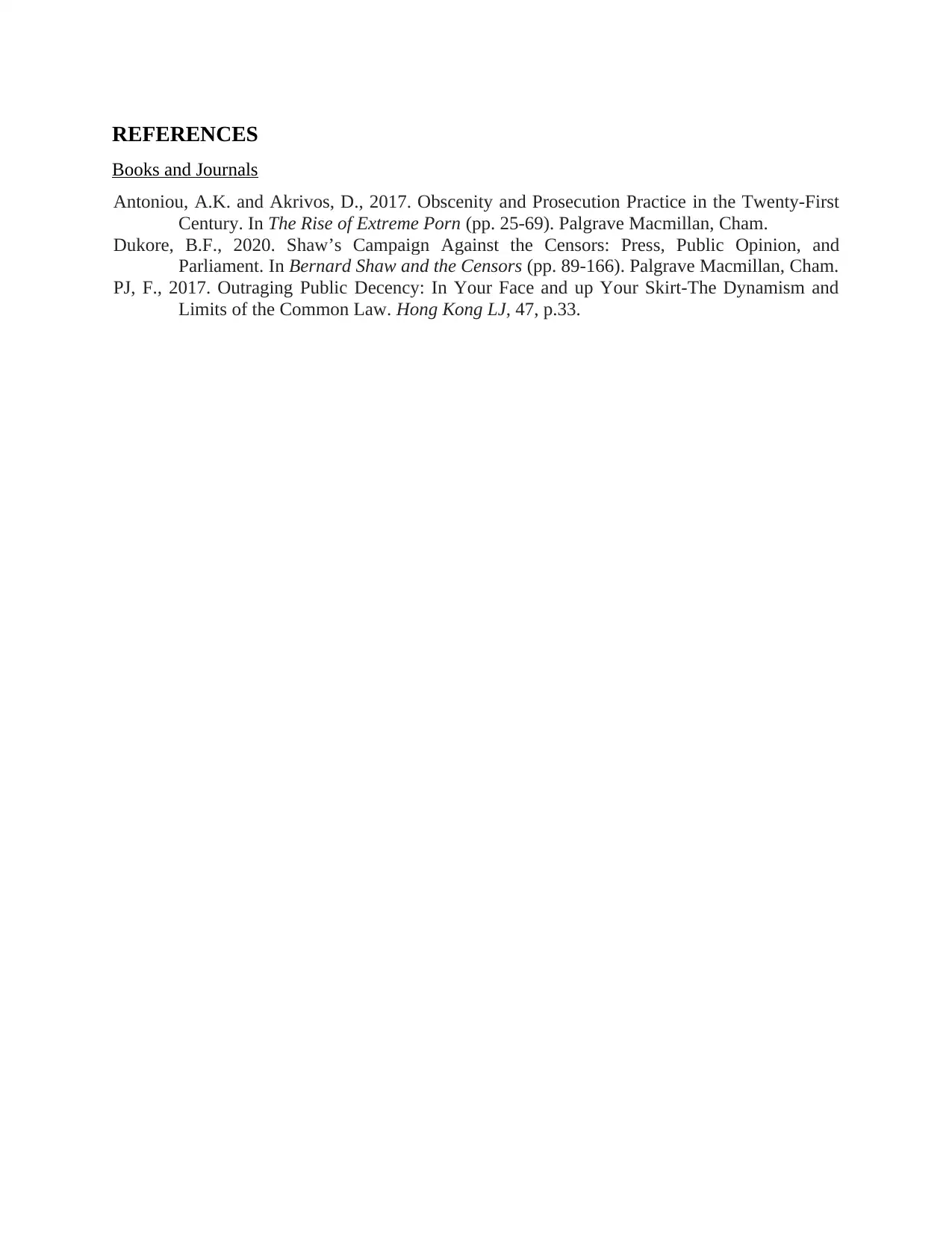



![[object Object]](/_next/static/media/star-bottom.7253800d.svg)